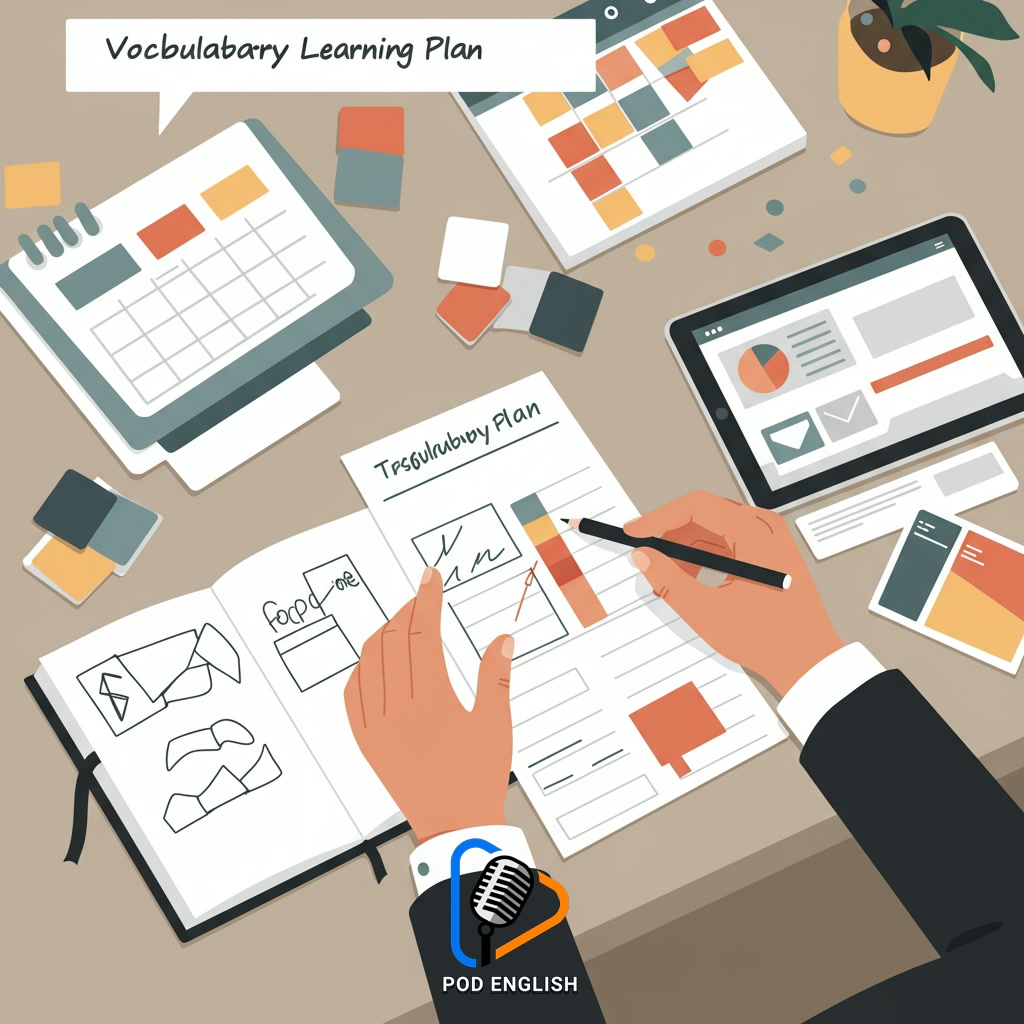Learn English
Learn English Faster: Simple Tricks to Rapidly Expand Your Vocabulary

This content offers simple strategies to accelerate English language acquisition. It focuses specifically on practical methods for quickly building a larger vocabulary. By applying these techniques, learners can significantly improve their ability to communicate in English more effectively and efficiently. The goal is to make the process of expanding your English word knowledge both fast and straightforward.
Table of Contents
- Section 1: Why Vocabulary is Your Fast Track to English Fluency
- Section 2: Simple, Effective Tricks for Rapid Vocabulary Acquisition
- Section 3: Putting New Words into Practice: Active Learning Strategies
- Section 4: Techniques for Remembering Vocabulary Long-Term
- Section 5: Integrating Vocabulary Learning into Your Daily Routine
- Section 6: Your Action Plan for Faster English Learning Through Vocabulary
Section 1: Why Vocabulary is Your Fast Track to English Fluency
Building a strong vocabulary is arguably the most direct path to achieving English fluency quickly. Think of words as the essential building blocks of the language. The more words you know, the more ideas you can express and understand. A limited vocabulary restricts your ability to communicate effectively, making conversations difficult and slow. Conversely, a rich vocabulary allows you to choose the precise words needed to convey your thoughts clearly and accurately, enabling you to understand complex information in reading and listening. Expanding your word knowledge directly impacts your ability to speak more confidently, listen with greater comprehension, read faster, and write more persuasively. Focusing on vocabulary provides a tangible and immediate improvement in your overall English proficiency, accelerating your journey towards becoming a fluent speaker.

Why Vocabulary is Your Fast Track to English Fluency
Section 2: Simple, Effective Tricks for Rapid Vocabulary Acquisition
Building a strong vocabulary is arguably the most direct path to achieving English fluency quickly. Think of words as the essential building blocks of the language. The more words you know, the more ideas you can express and understand. While the previous section established the importance of vocabulary, this section dives into actionable techniques. Forget rote memorization of long lists. Instead, focus on simple yet powerful methods like learning words in context, using spaced repetition systems (SRS) through apps or flashcards for efficient review, and actively using new words in your own sentences or conversations. Engaging with words multiple times through different activities like reading, listening, and writing will significantly accelerate your acquisition process.

Simple, Effective Tricks for Rapid Vocabulary Acquisition
Section 3: Putting New Words into Practice: Active Learning Strategies
Once you’ve encountered new English words, the crucial next step is to actively integrate them into your language use. Passive knowledge, where you recognize a word but don’t use it yourself, is less effective for fluency. To truly own a word, you must practice using it. This means intentionally incorporating new vocabulary into your speaking and writing. Try writing sentences or short paragraphs using the words you’ve learned. Look for opportunities to use them in conversations, even if it feels a little awkward at first. Keep a vocabulary journal where you note the word and then write your own example sentence or a short story using it. The more frequently and actively you use a new word in different contexts, the stronger your memory of it will become, making it readily available for communication.

Putting New Words into Practice: Active Learning Strategies
Section 4: Techniques for Remembering Vocabulary Long-Term
Moving beyond initial exposure, securing new English vocabulary for long-term use requires deliberate techniques. Active recall is paramount; instead of passively reading definitions, test yourself by trying to remember the word or its meaning without looking. Spaced repetition systems, whether physical flashcards or digital apps, leverage the brain’s natural forgetting curve by prompting review at increasing intervals, reinforcing memory just before you’re likely to forget. Furthermore, using new words actively in your own sentences, speaking or writing, creates stronger neural connections. Associating words with images, sounds, or personal experiences also makes them stickier. Regular, focused review sessions integrating these methods are key to transforming new words from fleeting acquaintances into permanent residents of your vocabulary.

Techniques for Remembering Vocabulary Long-Term
Section 5: Integrating Vocabulary Learning into Your Daily Routine
Beyond dedicated study sessions, embedding vocabulary acquisition directly into your daily life is a powerful strategy for long-term retention. Think about the small pockets of time available throughout your day: your commute, waiting in line, during a coffee break, or even while doing chores. These moments are perfect opportunities to review flashcards, listen to vocabulary podcasts, use language learning apps, or simply observe and identify new words in your environment, whether it’s street signs, product labels, or subtitles on a show. The key is consistency and making vocabulary learning a natural, effortless part of what you already do, turning passive downtime into active learning time. This constant, low-pressure exposure reinforces words and makes them stick.

Integrating Vocabulary Learning into Your Daily Routine
Section 6: Your Action Plan for Faster English Learning Through Vocabulary
Creating a concrete action plan is key to making rapid vocabulary growth a reality. Start by setting realistic daily or weekly vocabulary goals – how many new words do you aim to learn? Next, integrate the techniques discussed, like using flashcards, language learning apps, or actively seeking out new words in books and conversations. Crucially, schedule dedicated time slots, even short ones, for focused learning and review. Don’t forget to build vocabulary acquisition into your daily routine, as mentioned previously. Track your progress to stay motivated and adjust your plan as needed. Consistency is paramount; even small, regular efforts compound over time, leading to significant vocabulary expansion. This structured approach transforms passive interest into active, measurable progress.

Your Action Plan for Faster English Learning Through Vocabulary













